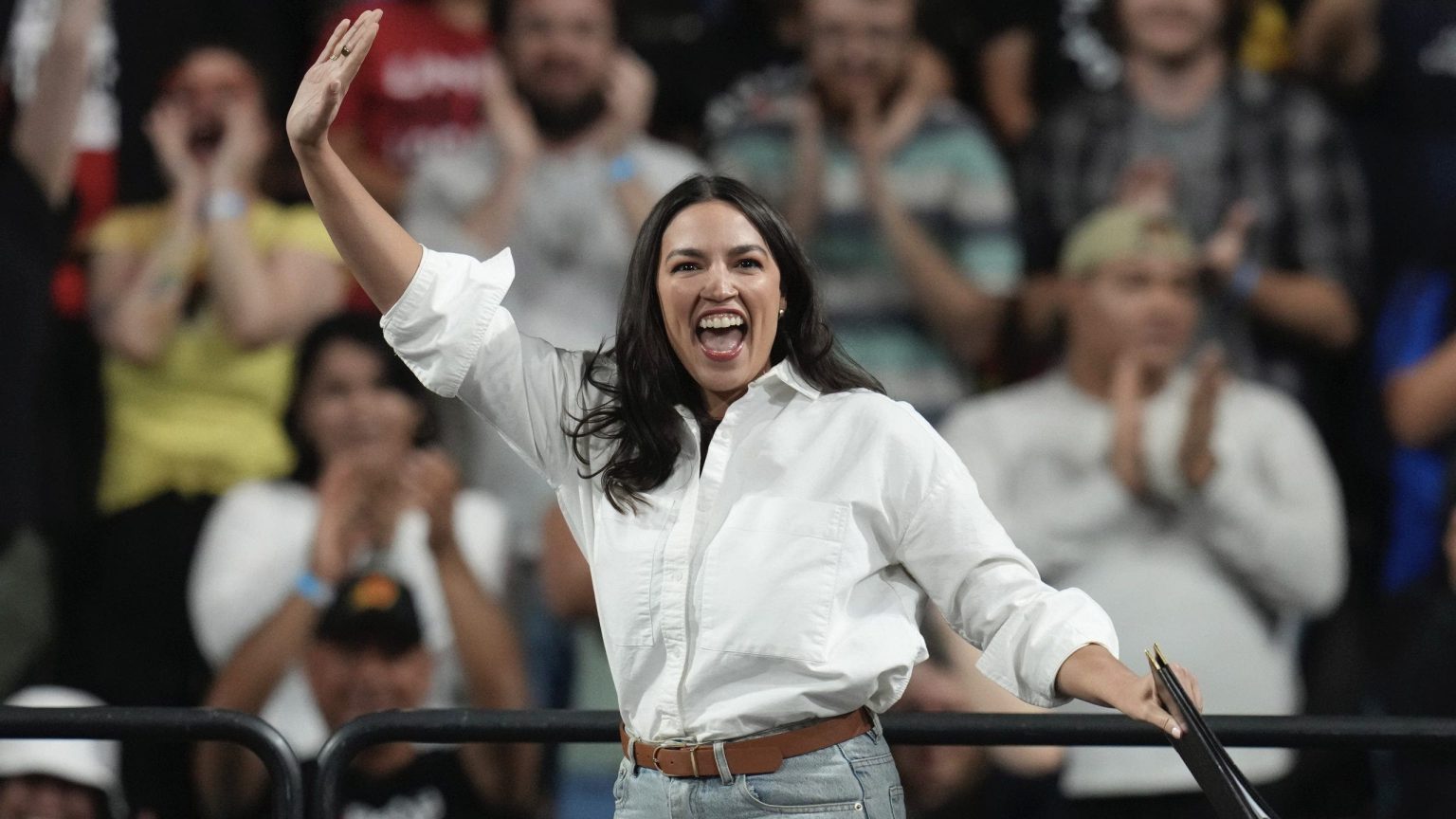In recent political developments, Rep. Alexandria Ocasio-Cortez (D-N.Y.) has been generating significant buzz with her collaborative tour alongside Senator Bernie Sanders (I-Vt.), titled “Fighting Oligarchy.” The tour has ignited speculation about Ocasio-Cortez’s potential presidential aspirations for the 2028 election cycle, particularly following her recent speeches that emphasize collective action and unity. As she and Sanders traverse various states, public interest in their political messages and future plans continues to grow.
| Article Subheadings |
|---|
| 1) Ocasio-Cortez’s message resonates on the campaign trail |
| 2) The significance of the “Fighting Oligarchy” tour |
| 3) Reactions from the electorate and party officials |
| 4) Historical context: AOC and Bernie Sanders |
| 5) Implications for the 2028 presidential election |
Ocasio-Cortez’s message resonates on the campaign trail
Rep. Alexandria Ocasio-Cortez has captured the attention of Americans as she embarks on the “Fighting Oligarchy” tour with Bernie Sanders. This tour, which includes several key states, is aimed at discussing topics crucial to voters, including economic equity and social justice. Ocasio-Cortez, known for her grassroots approach, emphasizes the importance of unity among diverse groups in America. While addressing her audience in Idaho, she remarked,
“I’m a girl from the Bronx. To be welcomed here in this state, all of us together, seeing our common cause, this is what this country is all about.”
Her remarks reflect a deep understanding of the diverse American demographic and a belief in collective responsibility toward democratic ideals.
The significance of the “Fighting Oligarchy” tour
The “Fighting Oligarchy” tour is not just a campaign effort; it serves as a platform for addressing systemic issues that many perceive as threats to democracy. Ocasio-Cortez and Sanders are leveraging this tour to highlight the impact of wealth inequality and corporate influence in politics. By traveling across the country, they aim to build a coalition of voters who are disenchanted with the current political landscape. This initiative represents a shift toward more progressive policies and a call to action for grassroots engagement. It offers citizens an opportunity to feel connected to their elected representatives, igniting hope for meaningful change.
Reactions from the electorate and party officials
Public reaction to the tour has been mixed but predominantly positive among progressive constituents. Many supporters express excitement at the prospect of a progressive shift within the Democratic Party, envisioning Ocasio-Cortez as a potential presidential candidate. Some party officials are cautious, noting the potential division among moderate Democrats. Still, the energy surrounding the tour suggests a growing base of support for Ocasio-Cortez and similar progressive leaders. This dynamic is crucial as the Democratic Party prepares for the upcoming elections, highlighting a generational shift in politics.
Historical context: AOC and Bernie Sanders
The partnership between Ocasio-Cortez and Sanders draws on a historical context rooted in social justice movements. Both figures have emerged as prominent voices advocating for policies such as Medicare for All, Green New Deal, and other progressive reforms. Their alignment reflects a conscious effort to create a united front against the establishment’s interests, which they argue have favored large corporations over everyday Americans. This collaboration is reminiscent of earlier progressive movements in U.S. history, where alliances were formed to challenge unfair systems.
Implications for the 2028 presidential election
As Ocasio-Cortez and Sanders continue their outreach efforts, speculation regarding Ocasio-Cortez’s potential candidacy for the 2028 presidential election intensifies. Political analysts suggest that her engagement in this tour is a significant step toward building a national profile and establishing a strong voter base. The implications of her candidacy could reshape the Democratic primary landscape, especially if she manages to galvanize younger voters who often feel neglected by traditional candidates. Experts recommend that Ocasio-Cortez and her team carefully strategize the messaging and outreach as they move forward to secure a competitive advantage in the forthcoming election cycle.
| No. | Key Points |
|---|---|
| 1 | Representative Ocasio-Cortez is touring with Senator Sanders to discuss systemic issues affecting democracy. |
| 2 | The tour emphasizes wealth inequality and corporate influence in politics. |
| 3 | Public reactions are largely positive, especially among progressive supporters. |
| 4 | Ocasio-Cortez and Sanders’ historical partnership reflects a commitment to social justice reforms. |
| 5 | Speculation around Ocasio-Cortez’s candidacy for the 2028 election is growing. |
Summary
The ongoing “Fighting Oligarchy” tour led by Rep. Alexandria Ocasio-Cortez and Bernie Sanders plays a pivotal role in shaping the discourse surrounding the upcoming presidential elections. Ocasio-Cortez’s focus on unity and collective action resonates with many Americans who are eager for change in political representation and policy. As they travel the country, the political landscape could experience a transformation that redefines traditional Democratic strategies, emphasizing the needs of a new generation of voters.
Frequently Asked Questions
Question: What is the aim of the “Fighting Oligarchy” tour?
The “Fighting Oligarchy” tour aims to address systemic issues such as wealth inequality and corporate influence in politics, while fostering a sense of unity among diverse voter groups.
Question: How has public reaction been toward Ocasio-Cortez’s campaign efforts?
Public reactions have been largely positive, especially from progressive constituents who are excited about the potential for a shift in the Democratic Party.
Question: What could Ocasio-Cortez’s candidacy mean for future elections?
Ocasio-Cortez’s candidacy for the 2028 presidential election could reshape the Democratic primary landscape, potentially galvanizing younger voters and promoting progressive policies.


